In the remote rural community known as Village #104, near Siem Reap province’s famous Beng Mealea temple, Phoung Thy and the AHC team have gathered with local mothers to teach them how to cook nutritious food, helping address an increase of malnutrition.
The village’s central meetinghouse is filled with dozens of mothers and children chattering with one another as they wait patiently for the day’s meal, the smoke from which has already clouded the unsettled room. Rotha, a mother of five in attendance, revealed that amidst the pandemic in recent months her family has resorted to foraging for food in the surrounding forest to make sure there is enough to eat.
“My children go out every day searching for small animals and edible plants around our home,” Rotha said.
Yet, Rotha still considers herself lucky compared to other families as her husband is employed on a nearby farm. She is the cook at the session, helping show the mothers how to make nutritious porridge using healthy ingredients – that they can source from their local market and gardens – including pumpkin, spinach, fish and rice.
“It is helpful when the ingredients are ones we can find or grow easily,” said Rotha. “That way we can cook healthier food more often, instead of buying cheap processed food.”
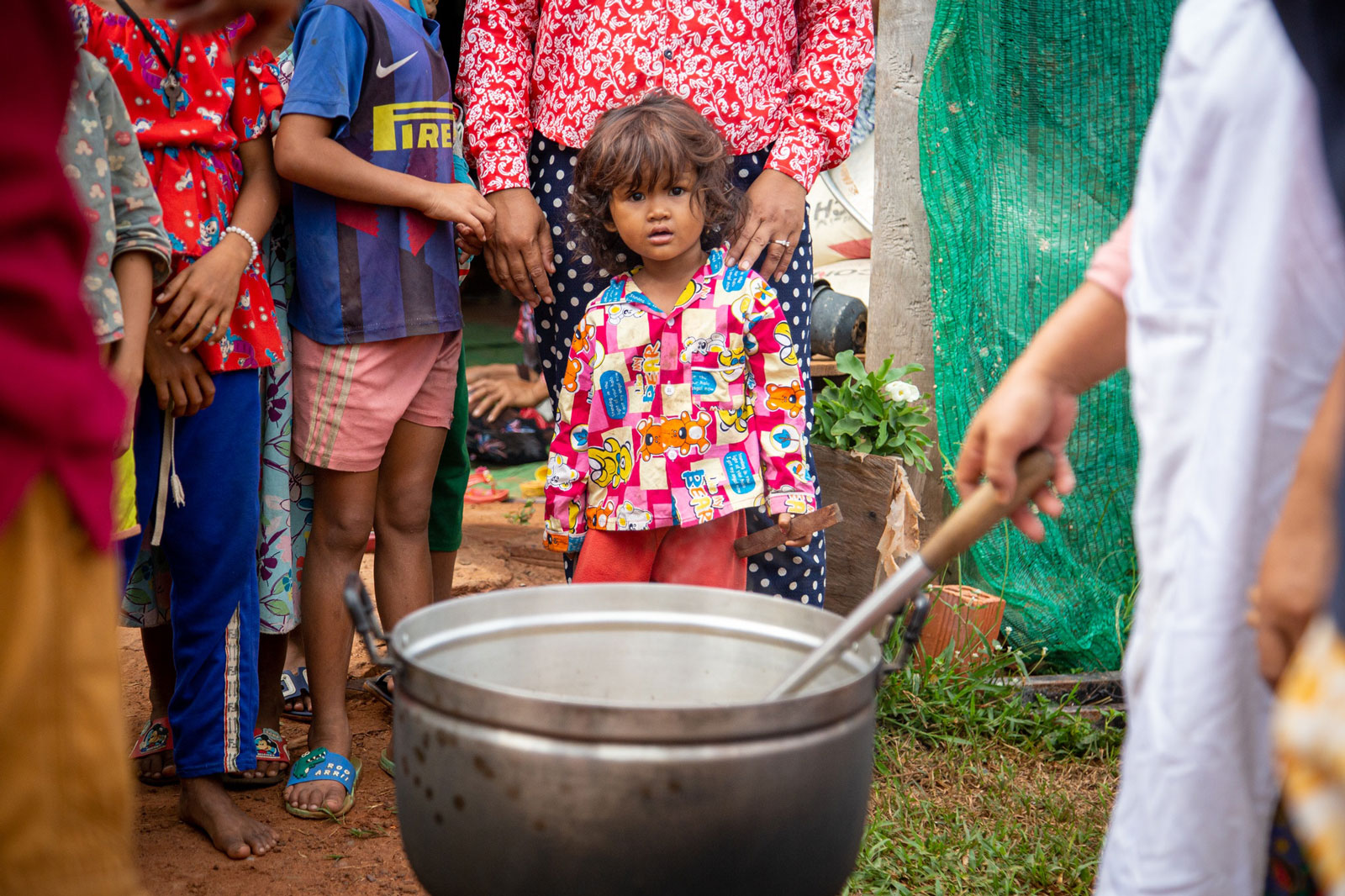
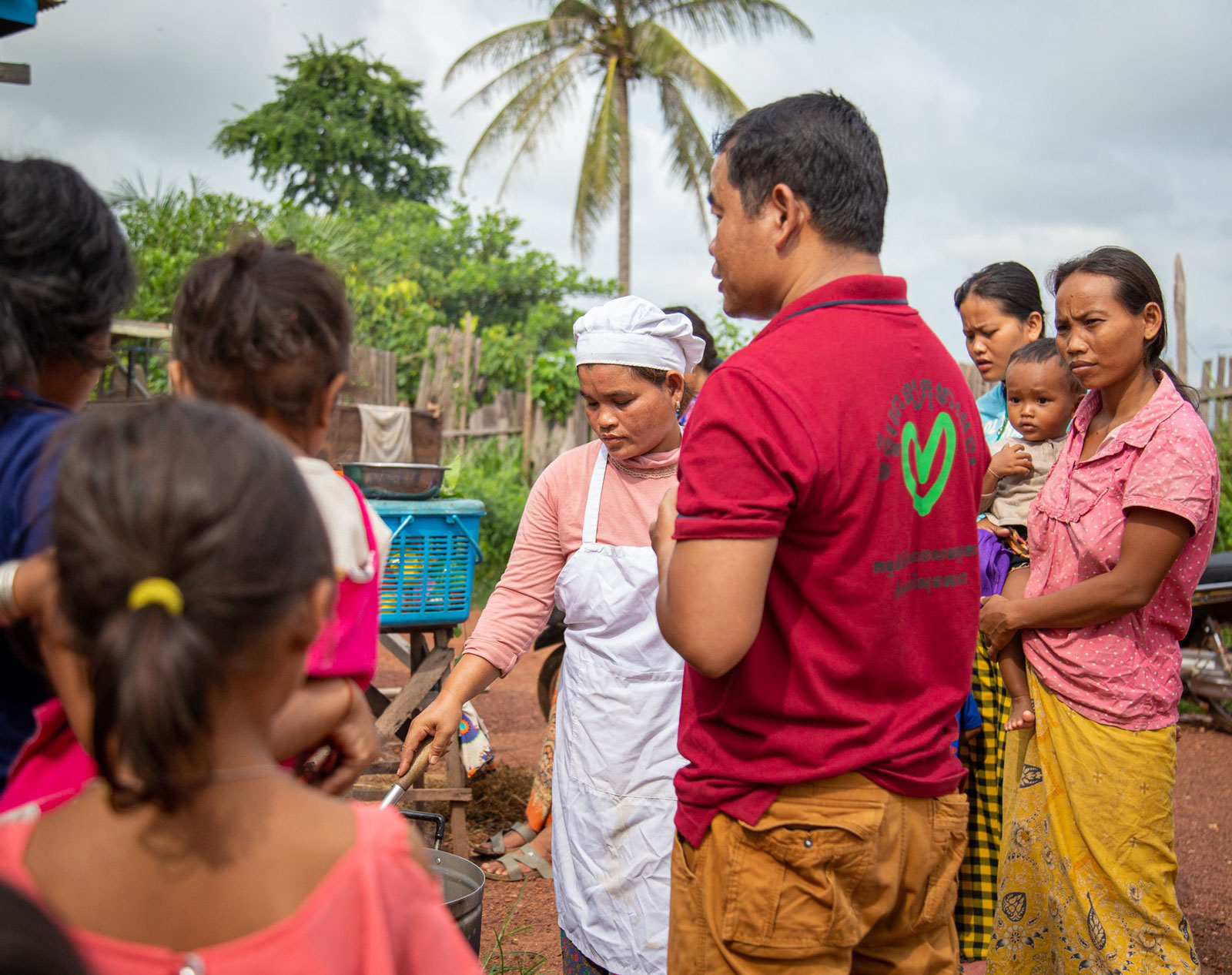
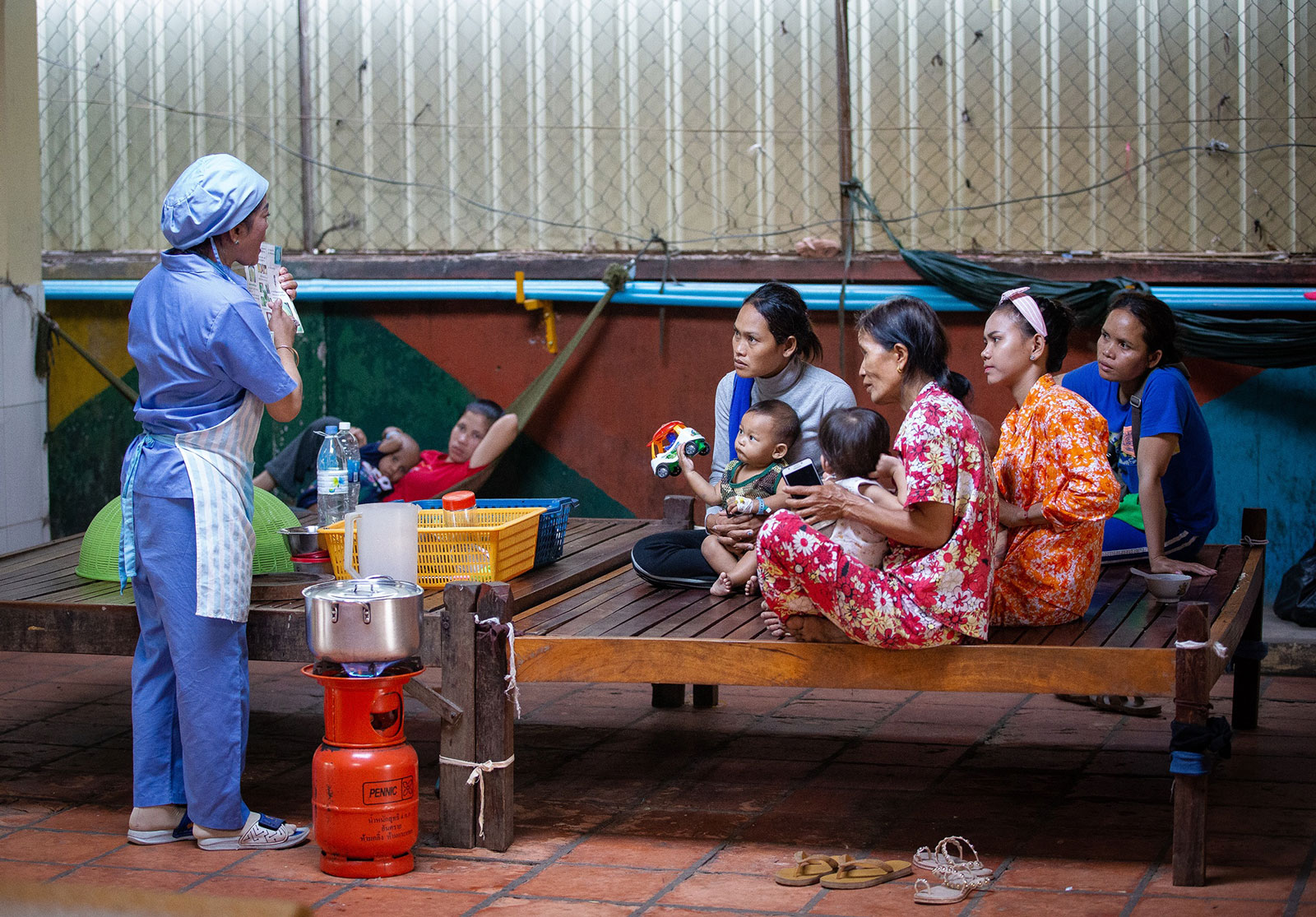
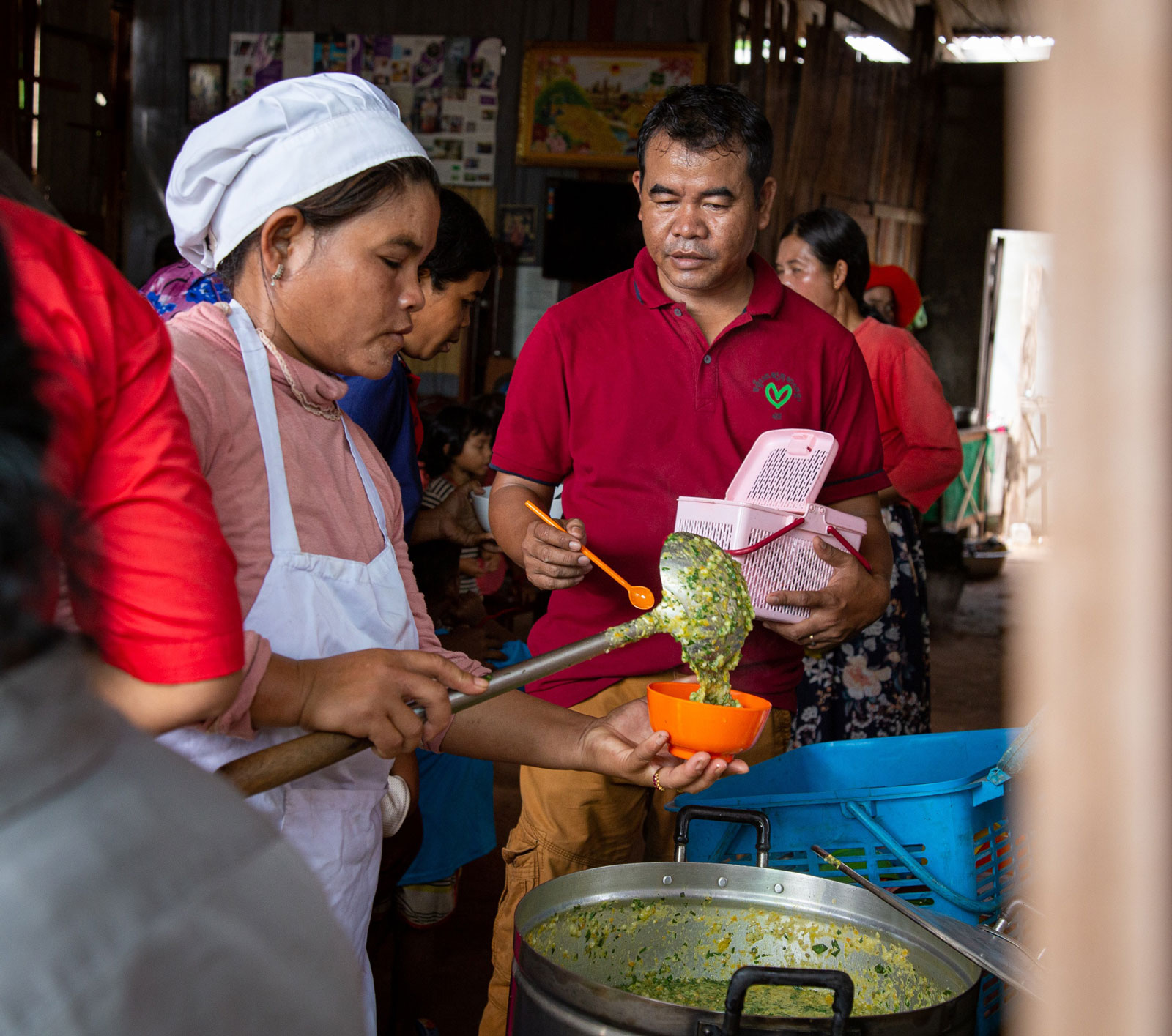
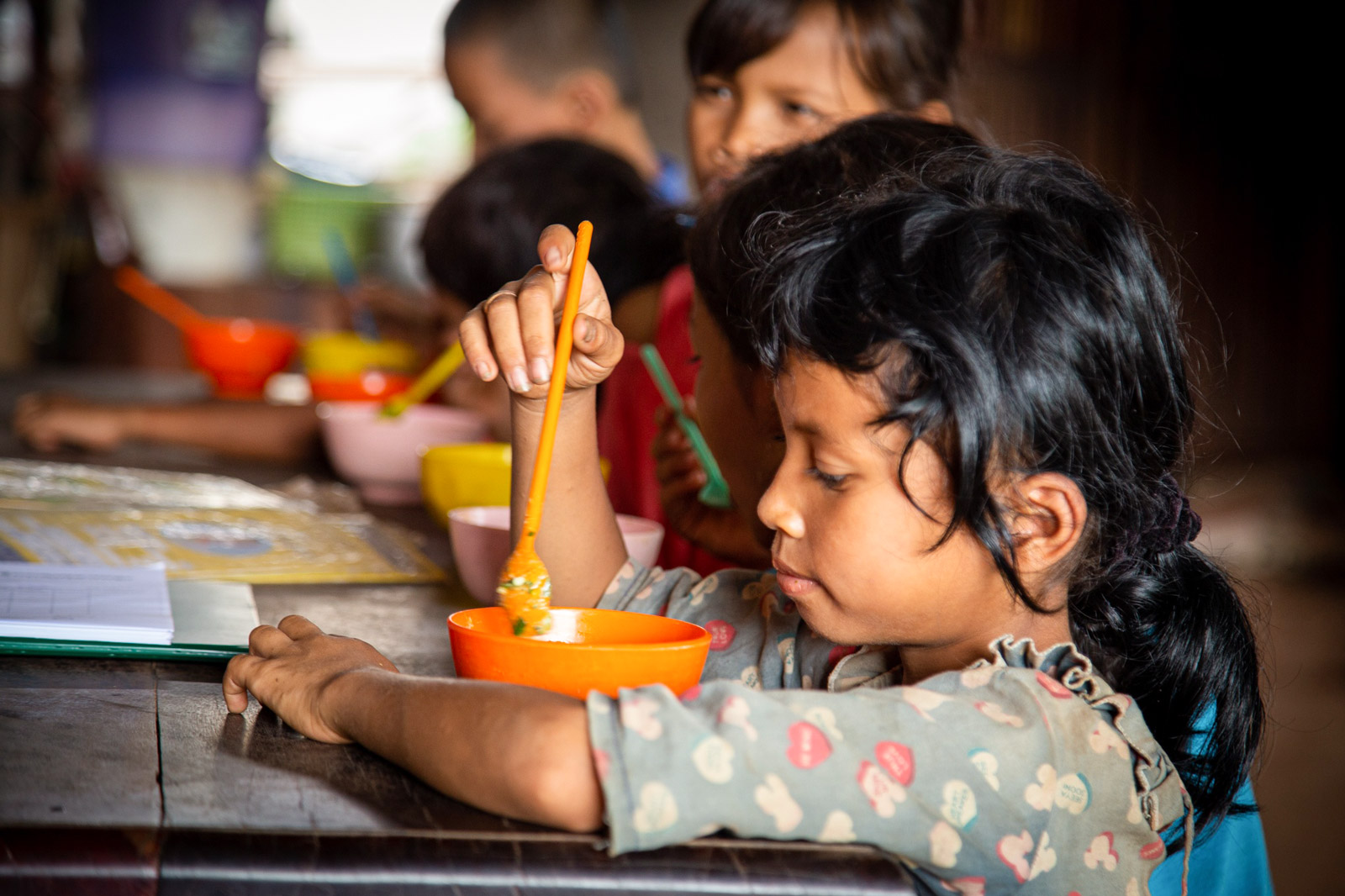
To date, Cambodia has been fortunate to avoid a full-scale outbreak of the coronavirus. However, for many years, poor diets and sanitation has affected the health of many of Cambodia’s children, and the current economic crisis is only exacerbating the burden caused by malnutrition.
According to a recent UN report, more than 72% of Cambodians have experienced income loss, salary reductions, or job losses due to Covid-19, with women and children being most vulnerable to inequalities in income distribution. The mounting financial hardship is forcing families to reduce spending on food and healthcare, while ongoing food insecurity and poor quality diets is putting thousands more children at risk of stunted growth, impaired development, and serious disease.
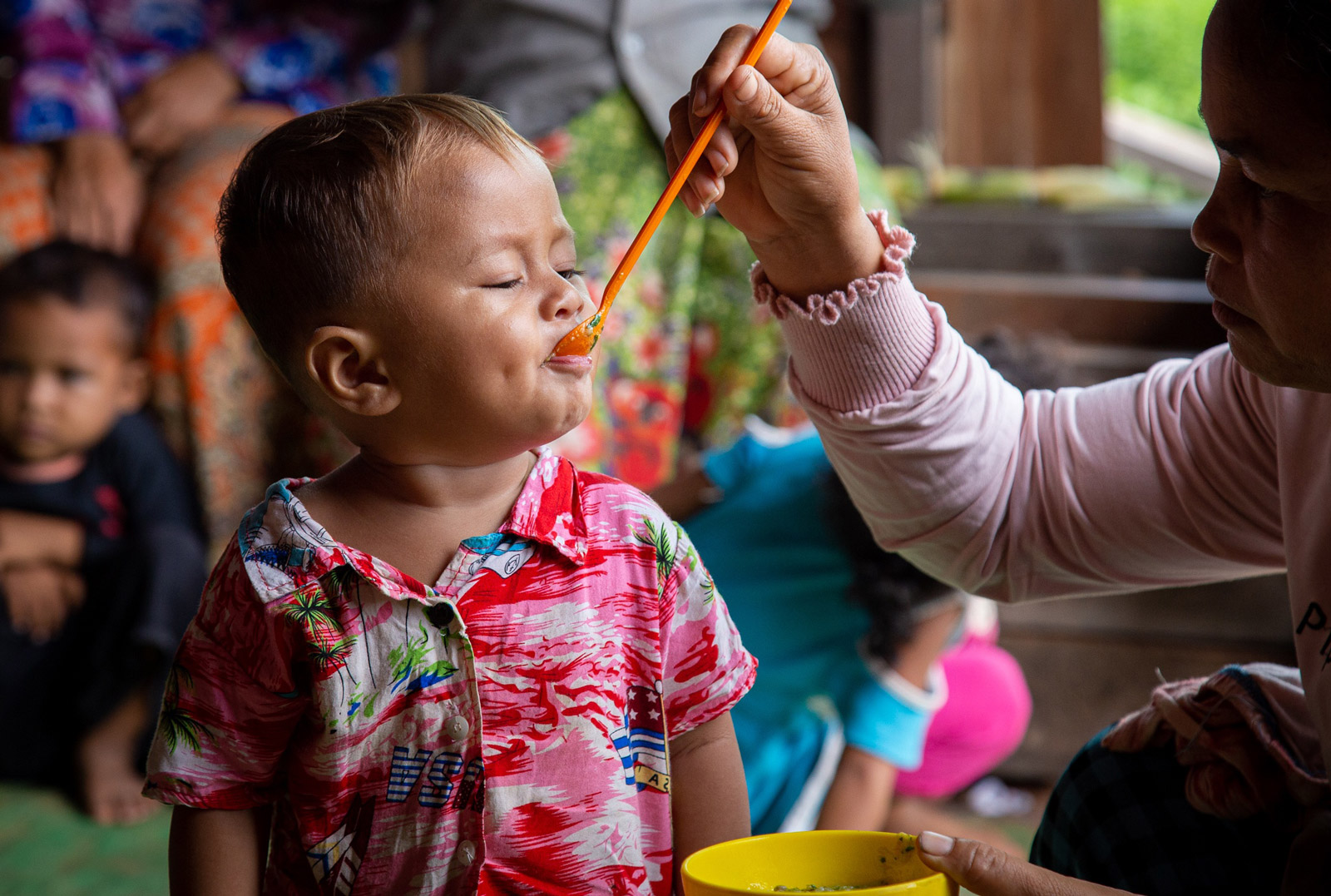
At Angkor Hospital for Children (AHC) in Siem Reap, the hospital reported that between January and September it witnessed a 39% increase in children who are undernourished compared to the same period last year.
Phoung Thy, a nutrition project assistant at AHC, along with the hospital’s community outreach team, have recently resumed visits to rural villages to combat malnutrition, and other impacts of Covid-19, after a brief hiatus brought upon by the virus.
“The villagers are finding it difficult with less money coming in and the cost of food increasing,” said Phoung Thy. “They have had to find food around their village, and their children’s nutrition is feeling the effects.”
Prior to the pandemic, malnutrition levels in Cambodia were steadily improving.
As of 2014, 32% of Cambodian children under age five were stunted – an improvement of 8% from 2010, and a significant drop from the near-50% it stood at two decades ago, but still double the rate of neighbouring Thailand. Meanwhile, a 2016 study published in the FASEB Journal found 32% of Cambodian children aged six months to five years old living in rural areas were severely anaemic, resulting in debilitating consequences to their health and productivity.
In rural areas, children are three times more likely to die before their fifth birthday compared to children in urban areas. Many families neither have access to clean water and sanitation, making them vulnerable to disease and infection, further contributing to malnutrition in children across the Kingdom’s countryside.
Back in Siem Reap, Sophon is a Village Health Support Worker (VHSG) at Village #104 who volunteers her time to help spread health awareness by organising meetings to teach basic healthcare knowledge. She has witnessed the coronavirus forcing villagers in her community to lose touch with the health system.
“I know many are worried to go to the hospital because of the virus,” Sophon said, “Others cannot sell their vegetables at the market so struggle to afford a trip to the hospital at all.”
She believes malnutrition could be affecting as many as 80% of the children in her village, due to diminished household budgets and parents seeking care only after common illnesses have become more serious.
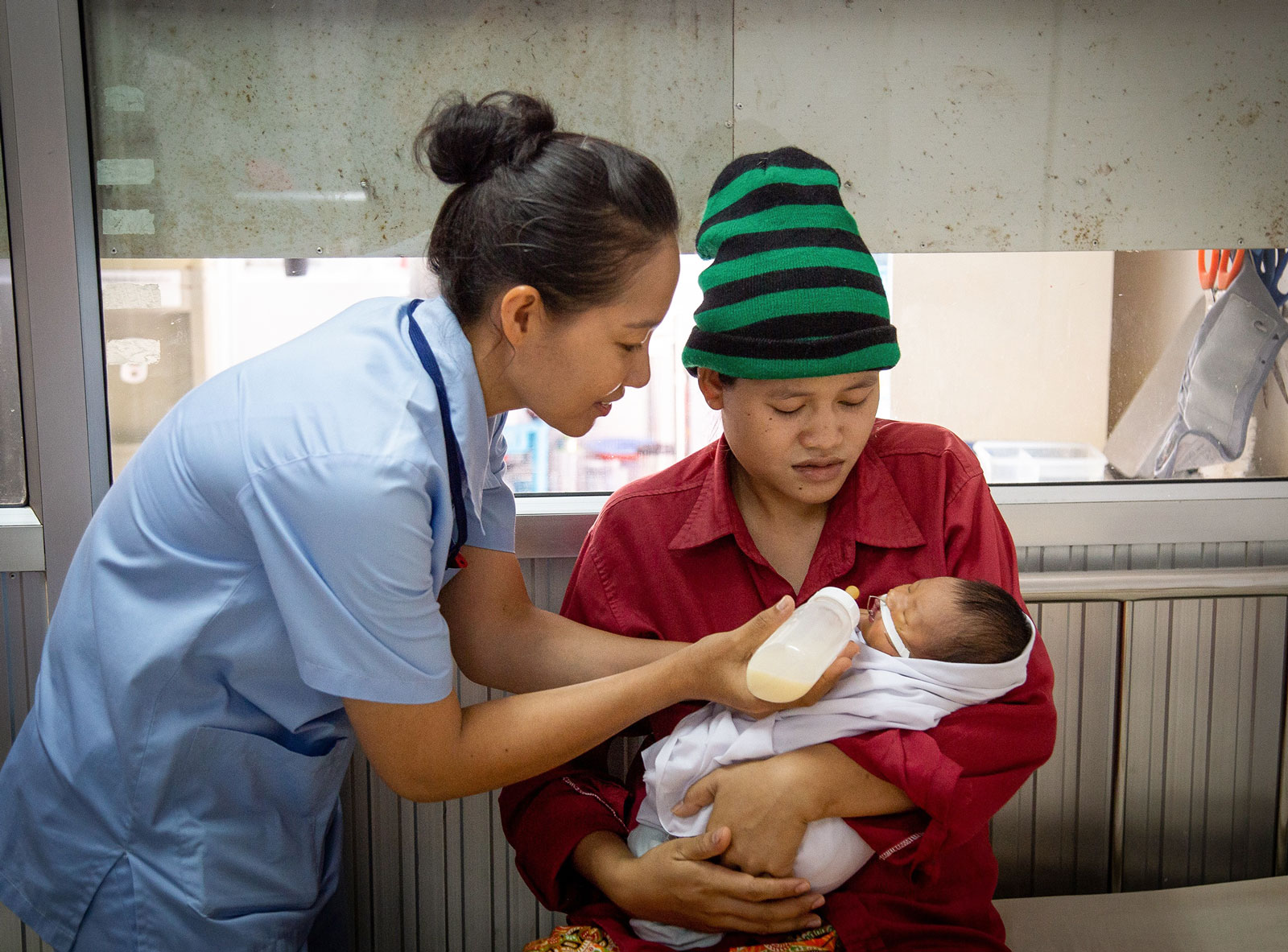
Punthea, a young mother of a six-month-old baby, said she could not afford to buy food for her severely malnourished son. Like so many other mothers during the pandemic, she is earning less and working longer hours, all while juggling childcare responsibilities. It was not until 10 days of high fever and diarrhoea that she travelled from her small village in Kampong Thom province to AHC in Siem Reap for urgent hospital treatment.
“I couldn’t understand what was wrong with my baby,” Punthea said, “I did not know that he was sick because of a lack of food.”
By now, her baby boy needed weeks of hospitalisation to treat his dysentery and severe acute malnutrition. If Punthea had sought medical advice earlier, she would have learned that her baby was not receiving enough nutrients from her breastmilk alone, and needed simple supplementary feeding.
Phannsy Sroeu, nutrition nurse at AHC, educates parents to change their behaviours at home, so that severe cases like Punthea’s baby are prevented before the need for hospital care.
“When their child is fed, they can fight off illness, and avoid the need for unnecessary travel and hospital expenses,” said Phannsy. “Saving them a lot more money in the long run while also protecting their children’s health.”
Joe Patchett is a Multimedia Content Producer at Angkor Hospital for Children, an independent, non-profit paediatric healthcare organisation based in Siem Reap, Cambodia.


